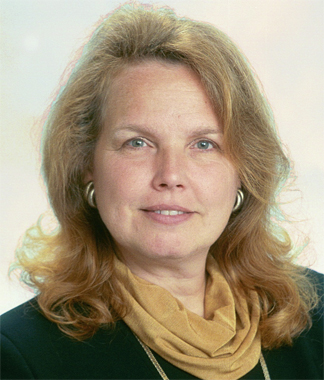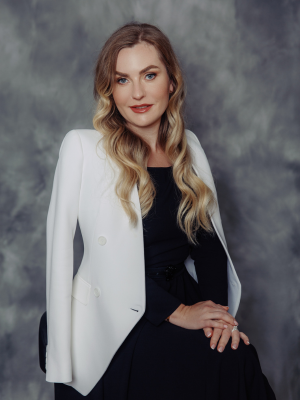 “Some people believe that passion will help you find what you want to do. I don’t really believe in that,” says Nadiya Kreynin. “I believe that you have to know what you want. Knowing what you want and doing something actionable towards it will bring the passion.”
“Some people believe that passion will help you find what you want to do. I don’t really believe in that,” says Nadiya Kreynin. “I believe that you have to know what you want. Knowing what you want and doing something actionable towards it will bring the passion.”
Leading on New Business Development
Moving to the U.S. when she was 20, Kreynin neither anticipated to end up staying in the country nor to end up running multiple businesses in technology. Having completed her undergraduate study in Ukraine, she came to the U.S and by chance started working in the IT industry. By immersing herself in the IT industry and interacting with professionals, she became fascinated with technology and soon found herself at Northwestern University studying for a master’s degree.
For years, Kreynin has run operations for Forte Group, having previously headed up recruitment and talent. Forte Group is a privately owned and globally operated custom software development company with 900 people. Kreynin and her husband are founders and majority shareholders. In the fourth quarter of 2022, they hired an executive team to run and scale it up further. This transition has allowed Kreynin to nurture and grow another new venture that initially rapidly blossomed during the pandemic.
Forte DGTL, formally launched in 2022, is a female-owned and 120-person strong Salesforce Commerce implementations company for global clients and partners. As the CEO, Kreynin is leading the charge, accelerating its growth to new heights. In fact, Forte DGTL was the first to help clients take B2B commerce to live status on the new Salesforce Lightning Platform. Forte DGTL holds the most B2B Salesforce Commerce implementations- ahead of giants such as Accenture.
This year, Kreynin will also be launching a Salesforce based Applicant Tracking product company, providing a shared platform for managers and recruiters.
To say that Kreynin is a force of nature is an understatement.
Finding People Who Make A Difference
Kreynin is always meeting fascinating people. In her twenties, she thought that she could conquer the world. In her thirties, she really began asking, what really makes a difference in creating impact? And when she looked around, she found that in the technology industry, as with most, it was about the people.
“I realized that my goal is to make sure that I’m in touch with the people who make a real difference in this industry,” she says. “Through my life, I’ve encountered people who wanted to achieve something and they stayed steady in that. They were able to change industries and change professions and succeed.”
Kreynin looks for people who are grounded in a strong values system and looking out for others. It’s a touchstone of integrity that one can return to, no matter what is going on. When faced with challenges, such as the war in Ukraine, having core individual and collective resilience and perseverance matters and makes a difference.
“It’s about how many times you stand up and make things happen for the better. It’s not about how many times you’re being pushed or how many times something challenging is happening,” she says. “This world for the past three years has my husband and I asking, ‘what next?’ We went through Covid in the services industry and we actually grew in the process. We are going through the war in Ukraine, and we are helping hundreds of people to find a new profession and support multiple charities.
Kreynin emphasizes, “No matter what comes, resilience, perseverance, and grit are the most important. No matter what is thrown at me, I will deal with this challenge and see what’s next. A lot of people find excuses not to be present and do what’s needed. These three qualities are what made me successful and are ones that I also look for.”
Growing up in Ukraine helped cement these qualities in Kreynin early on in her life. For example, at seventeen years old, she was faced with difficult tasks and had to raise NGO funds. She turned these into learning opportunities and along the way, they reinforced her grit.
“Going through those mission impossible challenges early on helps quite a bit,” says Kreynin. “I often encourage people and tell them ‘don’t find the reason to say no. Find the reason why it’s a yes; why it’s possible.’ At the end of the day, if you want this goal, how do you make it happen throughout all of the challenges you will have? Because challenges are inevitable.”
Know What You Want and Let Passion Follow
Kreynin hated learning English as a child in the Ukraine, but she came to realize that learning it was not about liking to learn English. She needed to learn English to be successful, so knowing what she wanted brought the passion to devote herself. She even wrote prize-winning work for the National Science Academy.
“Some people believe that you have to be passionate about what you do. I don’t believe in that,” says Kreynin. “I believe that you have to know what you want. Knowing what you want and doing something actionable towards it will bring the passion.”
Recently, Kreynin wanted to hire a marketing team but realized she did not have the context against which to gauge candidates’ responses. She took a data analytics and marketing course at the University of Chicago so she could be more enabled to find the right candidate and skills that match her company’s needs. She recommends that expanding the knowledge base and diversifying the ability to work across broad teams are two important traits of leaders. While she may not have planned going to school to help her build her marketing team, she did it because she needs to grow her knowledge base and gain other perspectives.
“It’s a must to keep growing if you’re a leader, or otherwise you will always have blind spots,” she says.
Kreynin also encourages women not to be afraid to start things. We can spend too much time overthinking and over-consulting others. Create the plan and find a way to move a step forward towards what you want and then let that momentum bring the passion with it.
“I don’t have all good days. Sometimes, I have bad ideas where I think that I want to quit all of this,” she admits. “But it’s the desire to achieve something bigger, and knowing it is something that I want and where I can make a big impact on people. Going through the bad days with that thought in mind helps me moving forward.”
Standing Her Ground In Every Room
“I can be one woman in a room of investment bankers. It may even be a half hour before I notice there’s not many other women,” she says. “It’s never been an issue for me to hold myself within the room. I suspect dealing with software engineers for most of my career supports that.”
Kreynin advises that having the perspective that you are going to meet many amazing people in the world is important. Some will be fascinated with you and what you can do. Some will be less interested and underestimate you. What matters most is being okay with yourself as you go through each of those kinds of experiences and learning from them.
“Going through that experience of being the only woman in the room — just walking in and doing it multiple times; having the experience is going to help,” encourages Kreynin. “The fact that you don’t do that or don’t have the opportunity to do that – that you don’t walk in that room and own your place – is what will hinder you.”
In her early days, she recalls holding her tongue in meetings where she didn’t agree with senior leaders. She rationalized that they probably knew better, but several times it turned out that that was not the case. Her perspective would have served the discussion and decision-making well. She recommends not censoring yourself when you have a dissenting opinion. Don’t be afraid to speak up.
“When you question yourself too much, you hold yourself back,” she says. “If you have a thought on how to approach something, you should speak up, because you may end up as the senior person or the person with the most helpful perspective in the room, no matter your age.”
Kreynin notes that being a woman in tech brings its own challenges and benefits: “People tend to make assumptions, and I think those assumptions usually work to my advantage,” she smiles. “Because when they begin to work for me, they are quickly surprised and realize they have to be much better.”
She has found that regardless of her position, some people do tend to underestimate how much she knows, only to be called to attention when the opposite proves true – but that also encourages people to play at the top of their game and to check their own biases.
The Value of Honesty and Directness
Kreynin would consider herself a good judge of character with a sharp ability to read the dynamics of a room. Being in the industry has given her unique insights into the challenges and pitfalls, as well as the qualities that are required to thrive in different roles in technology. In a meeting room, you can expect directness. She manages her teams by providing clear and transparent expectations and support. She feels that it’s critical to surround yourself with people who are open, humble, and can truly support one another through transparent discussions. So when it comes to manager relationships, the ability to be frank, honest, and transparent is important to her.
“If you are not able to talk openly to someone who is your subordinate, and they are not able to tell you what they truly think, because there is fear or intimidation in the manager-employee relationship, then there are a lot of things that you cannot solve at the table,” she says. “That block will create a lot of challenges.”
Selling and Recruiting and Selling Yourself
“I think everyone always sells and everyone always recruits – ensuring our clients are successful each and every day. Those are two jobs in services industries, no matter what your title is,” quips Kreynin. “Our new CEO is selling and recruiting. Our new CFO is selling and recruiting. Everyone in the service industry should be doing that job aside from everything else. Because every time you talk to someone in the industry or not, you’re talking about your company and what you’re doing in the service of the client success.”
When interviewing people for senior positions in her company, she has developed a keen ability to observe how people sell themselves and listen between the lines.
“I like to hear stories from people. So when I hear a story once, I look for consistency. Can they tell the story consistently? I am also listening for holes and areas where I need to dig deeper. I also listen for if they talk badly about employers, as I strongly suspect that if they talk badly about someone else, they will talk the same way about this organization if we were to part ways,” says Kreynin. “I listen for if they talk about themselves from the standpoint of ‘I built it’ or are they talking about being the one to drive a team of people who, together, built it. We know it takes a village to create something better and bigger.”
Making Real Impact in Ukraine
Kreynin is proud to have built different businesses and to be working as a support system for others. She also is highly motivated towards supporting causes in Ukraine, where she has family in Kyiv and the Western Ukraine regions.
One such cause is Friends of Ukraine, a charity that funds the training of Ukrainian men and women to undertake vital de-mining work within Ukraine while also giving them paid work so they can live through the uphill battle that the nation currently faces. Another cause has been helping people in and displaced from Ukraine to reskill in Information Technology so they can earn remote income and continue building their lives. Through the Forte Group educational platform, Kreynin decided they could teach ‘quality assurance’ as a viable skillset. Within two days, they received 2,000 applicants to the program. The company even hired some of the trainees.
“If you’re helping people to change professions or gain new marketable skills, you can make a long-term impact.”
Kreynin and her husband also support LeoDoc Foundation for Doctors Online in Ukraine. Before the war started, they invested in an online telehealth platform (Doctors Online) for people in Eastern Europe. Since the war began, they have supported a fund that helps this platform providing free medical consultations to the Ukrainian people who otherwise have no access to medical help. Talking about impact, Kreynin and her family are certainly making a difference.
Kreynin cherishes spending time with her two children, aged six and ten. Additionally, she finds solace and peace in nurturing living things and has established a serene morning ritual of tending to her garden while savoring a cup of coffee.
By Aimee Hansen


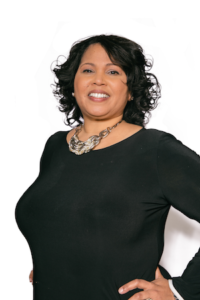
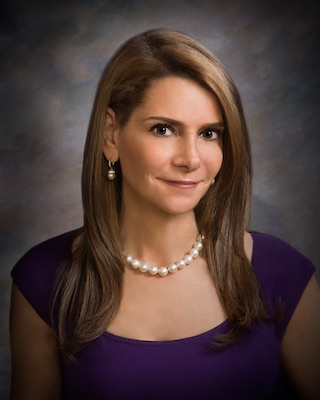
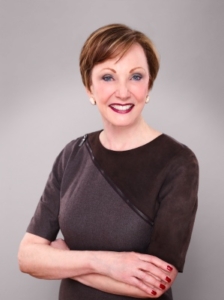 You have to have trust in your intuition; it can be easy to listen to all the buzz around you, but paying attention to your inner self will always lead you down the correct path, says Diane Ramirez.
You have to have trust in your intuition; it can be easy to listen to all the buzz around you, but paying attention to your inner self will always lead you down the correct path, says Diane Ramirez.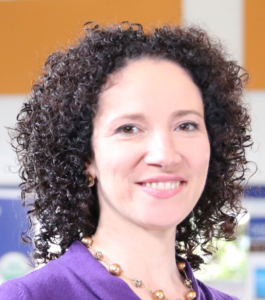 When one of Noha Waibsnaider’s loved ones passed away, she was overwhelmed by grief—which made the logistical hurdles of coordination and communication that much more challenging during an already difficult time.
When one of Noha Waibsnaider’s loved ones passed away, she was overwhelmed by grief—which made the logistical hurdles of coordination and communication that much more challenging during an already difficult time. We would like to wish all our readers a safe and healthy and fun festive season.
We would like to wish all our readers a safe and healthy and fun festive season.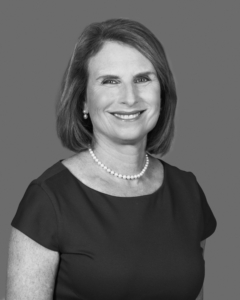 By Nicki Gilmour, CEO and Founder of theglasshammer.com
By Nicki Gilmour, CEO and Founder of theglasshammer.com